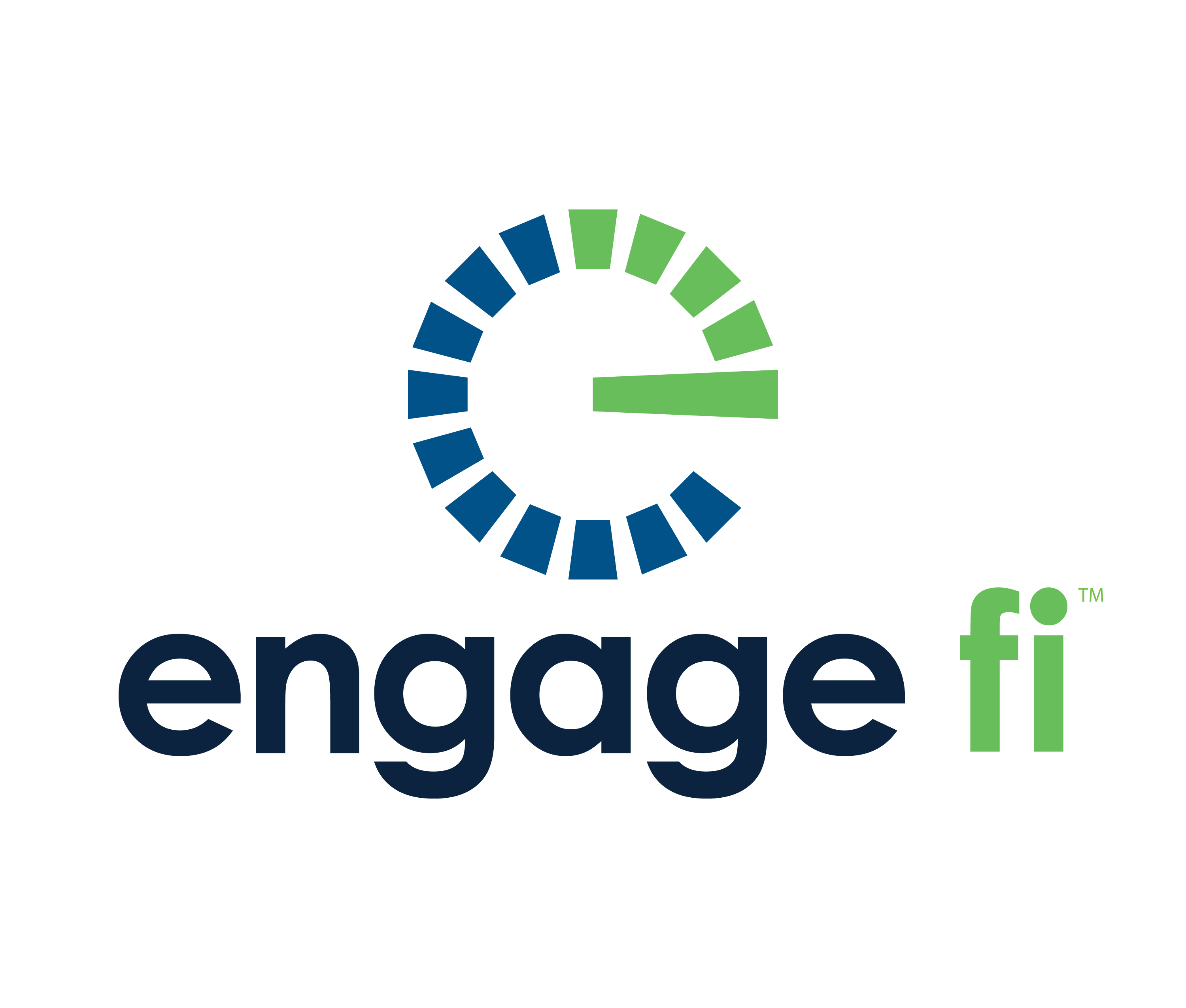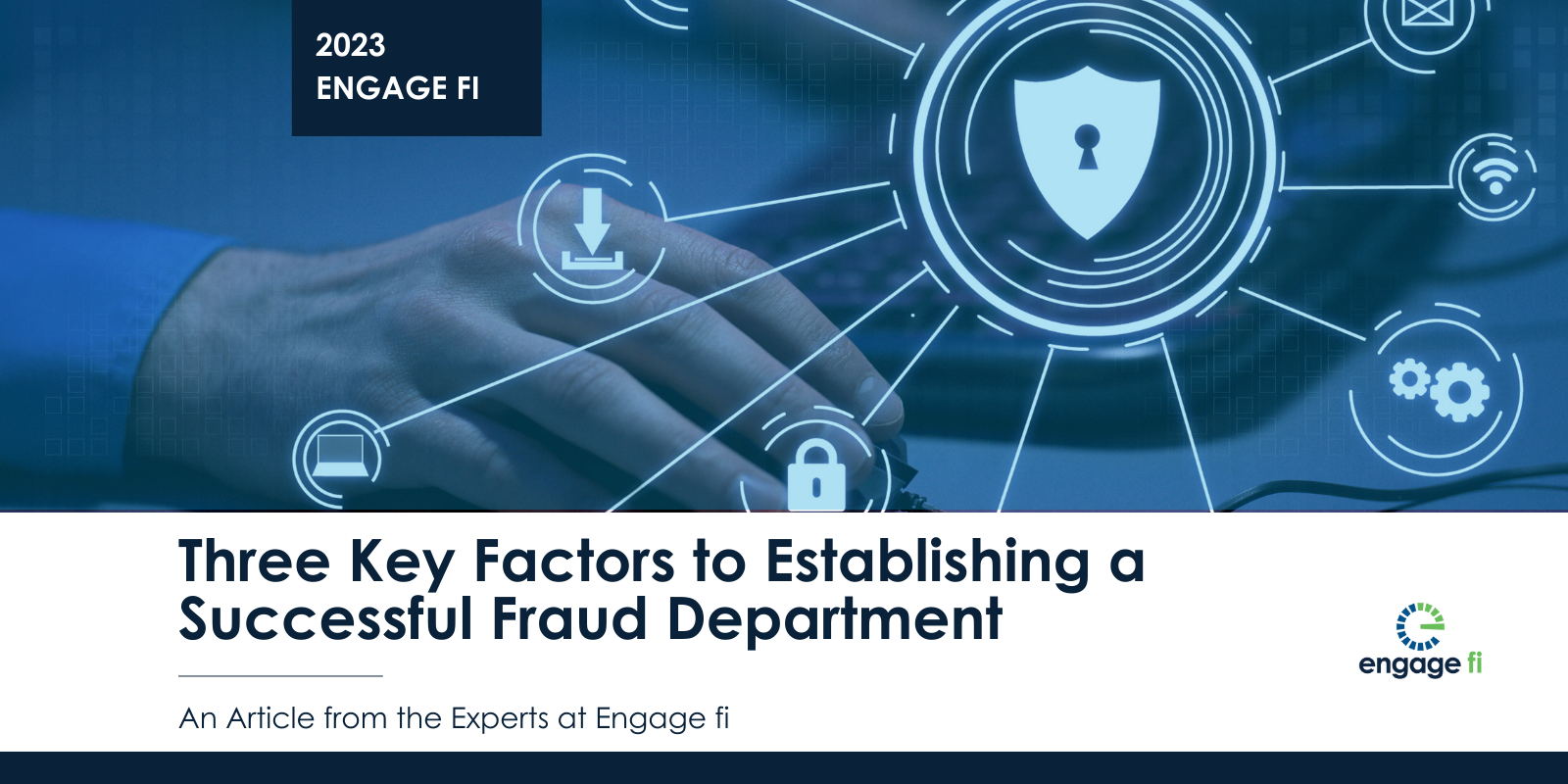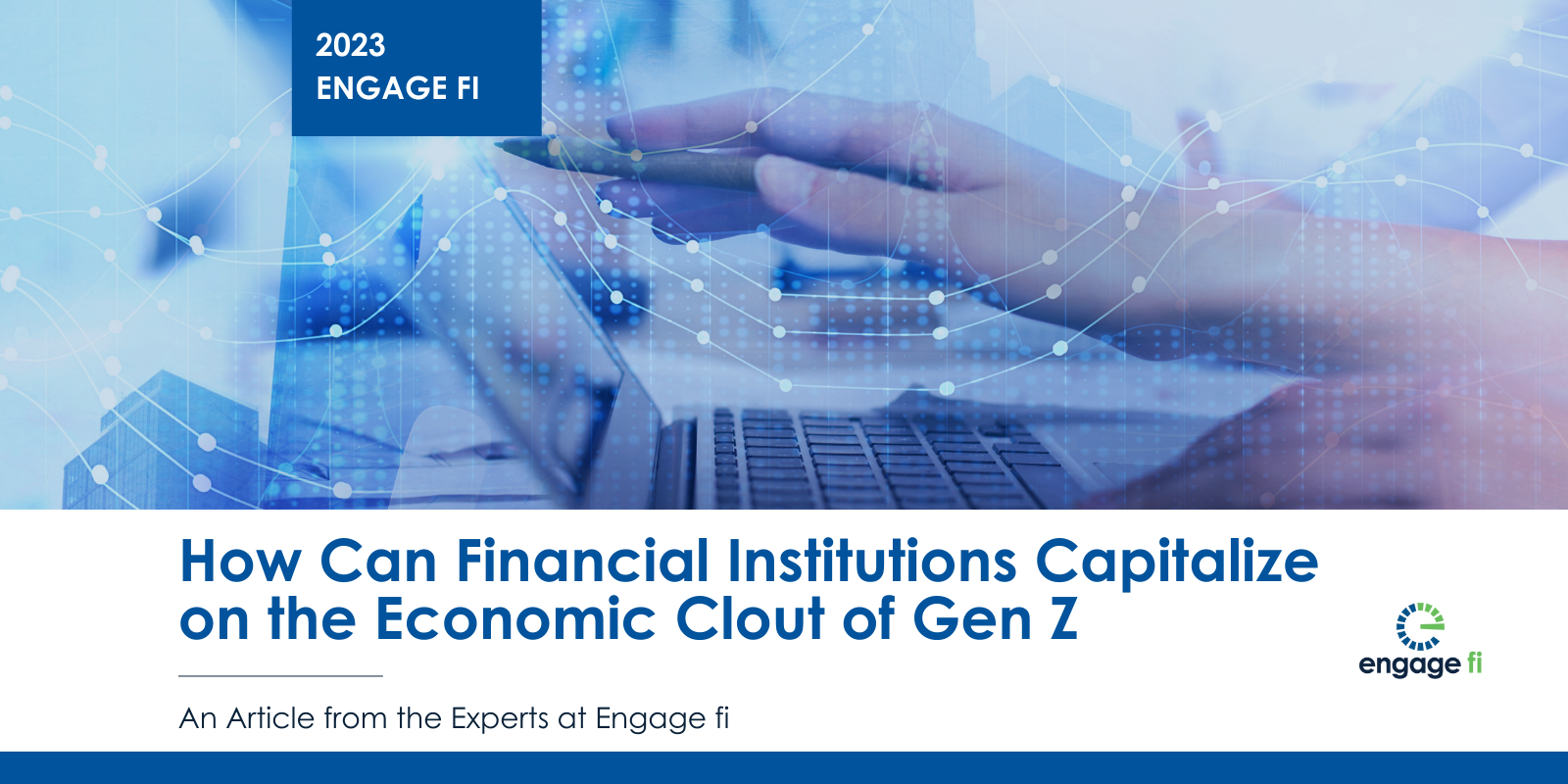Three Key Factors to Establishing a Successful Fraud Department
What is Fraud? Is fraud the wrongful or criminal deception resulting in financial or personal gain? Or is fraud a person/thing intended to deceive...
Navigate this high stakes process with precision.
A solution delivering fast, efficient, and accurate core data.
Digital solutions to grow, scale, and outperform.
Reliable, efficient, and integrated core platforms deliver results.
Select modern communications channels to integrate with core and digital solutions.
Strategic Planning
Support services for the strategic planning process at every level.
M&A Planning
Realize the key value drivers resulting from your merger or acquisition.
Performance Benchmarking
Tailored metrics and benchmarks designed to assess relationships.
Organizational Efficiency
Enhance efficiency across branches, digital channels, and contact centers.
A digital library of industry news, analysis, best practices, and thought leadership tailored to the challenges and opportunities faced by financial institutions.
Our in-depth analysis of conversion strategies, M&A activity, and the evolving landscape of financial services.
A podcast channel for the time-constrained banking professional delivering sharp insights on fintech, strategy, and leadership to help you stay ahead in a fast-changing financial world.
For 360fi Workflow clients only. Sign in to access the workflow library and other guides, forms, and tutorials.
3 min read
 Engage fi team
:
Sep 12, 2022 9:34:51 AM
Engage fi team
:
Sep 12, 2022 9:34:51 AM

Cybercrime is on the rise and has completely disrupted the financial industry. Forbes recently reported that businesses suffer ransomware attacks every 40 seconds. Phishing emails cause two-thirds of ransomware infections, and every year, these attacks generate an estimated $1billion in revenue for cybercriminals.
While financial institutions have applied advanced security measures and devoted resources to protect all assets, including customer data, mitigating the risk cannot always eliminate a cyber-attack. The Coveware Quarterly Report estimates that more than 70 percent of attacks are on businesses with between 11 and 1,000 employees. These criminals aren’t just after big business; they have found an easy way to target small to medium-sized businesses that are more vulnerable by demanding an average ransomware payment of $228,200 in Q2 of 2022. Add the fact that the average time to fully recover is 24 days, and these attacks can immobilize any financial institution.
One critical piece to a successful cybersecurity strategy is to have a proper insurance policy in place in the event something happens.
Cyber liability insurance coverage protects your financial institution against such cyber incidents. Risks covered can include:
Cyber policies have been in existence for about a decade, but significant claims activity only began about three years ago. As a result, carriers are increasingly selective about who they will underwrite, policy limits have decreased, and loss deductibles have increased. Adding to the difficulty of ensuring that your financial institution has adequate coverage, the overall cost of cyber liability insurance has soared year-over-year due to the increase in claims and unpredictability of the future. There is also a growing list of requirements to maintain coverage, such as providing extensive documentation and proof of Multi-factor Authentication (MFA). In some cases, a financial institution cannot obtain the proper insurance coverage without demonstrating the use of MFA’s across the organization.
As with most insurance policies, financial institution cyber liability policies are unique to each insurance carrier and must be evaluated carefully. The following questions should be considered when talking about cyberbanking insurance:
The stakes are high. Financial institutions are significant targets for cybercrime. According to global cybersecurity leader Trend Micro Incorporated, the banking industry experienced a 1,318% year-over-year increase in ransomware attacks.
In short, a proactive approach with a recovery plan in place is critical to protecting your financial institution against an attack. Cyber insurance will help to mitigate your risk, but consider adding a third-party consultant to your strategy who can assist you in navigating the market alternatives and help prioritize coverage based on the specific needs of your financial institution.
As cybercrimes continue to increase in frequency and sophistication, financial institutions are working tirelessly to stay on top of quickly evolving situations. However, a consultant with experience and knowledge of your industry can work with your team to ensure you have the right protection in the unfortunate event that your systems or data are compromised.
—
 Kellie Lowder brings almost three decades of experience working with FI’s to help them achieve their goals. Prior to joining Engage fi, Kellie was functioning as a partner to our team while growing and managing her own consulting firm. Her passion for insurance comes from working with clients across the US as an executive at SWBC for almost fifteen years prior to starting her own firm. As senior advisor, Kellie is working with our team to build a new line of business to serve our clients’ insurance needs. She will utilize her expertise to consult with financial institutions as they navigate key insurance decisions and negotiations.
Kellie Lowder brings almost three decades of experience working with FI’s to help them achieve their goals. Prior to joining Engage fi, Kellie was functioning as a partner to our team while growing and managing her own consulting firm. Her passion for insurance comes from working with clients across the US as an executive at SWBC for almost fifteen years prior to starting her own firm. As senior advisor, Kellie is working with our team to build a new line of business to serve our clients’ insurance needs. She will utilize her expertise to consult with financial institutions as they navigate key insurance decisions and negotiations.
To schedule a time to speak with Kellie or one of our other consultants about your financial institution’s cyber security strategy, please call us at (844) 415-7962 or click here to book a call online.

What is Fraud? Is fraud the wrongful or criminal deception resulting in financial or personal gain? Or is fraud a person/thing intended to deceive...

Gen Z does not have much interest in traditional banking. They were grandfathered into their families’ brick-and-mortar personal bank, and banking...
Card loyalty programs are a proven marketing tactic, offering the ability to reward and incentivize customers. Although card loyalty programs are not...